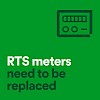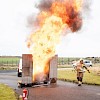
Consumer Comfort Choice (Oban)
Phase 1
Across much of rural Scotland, mains gas is not available and many households use electric storage heaters. These can be difficult to control and expensive to run.
With funding from the Scottish Government's Improving Consumer Outcomes Fund, ALIenergy and project partner Connected Response, surveyed and assessed the experience of electric storage heating consumers in Oban, Argyll. The aim was to develop a Demonstrator Project based on practical low cost innovation in Phase 2, which would improve consumer comfort and provide a range of benefits:
- better heating at the times of their choice
- lower bills
- improved comfort and health
- ability to easily switch suppliers and thus reduce dependency on one particular tariff
- future potential to access local renewable generation where available.
Oban is one of the few areas with a Local Energy Plan, which helped us enormously when selecting an area to target and providing useful statistics. We selected the area of Oban to engage with because there are many households with electric storage heating (around 57%). The survey and initial engagement allowed us to assess the needs of electric heating consumers. The feedback was that households were unhappy with both the cost of their heating and the comfort provided.
Survey respondent quotes:
“I just don’t understand the meter”
“It’s hard to budget over winter because we’re constantly putting money in the meter”
“We’ve just got used to it but would prefer the flexibility of gas central heating”.
Phase 2 - HeatSage technology for the flexible control of electric storage heating
ALIenergy and Connected Response are working together to reduce heating bills and improve the heating experience of Oban’s residents. To achieve this, Connected Response’s HeatSage technology is being offered for installation in 90 properties in Oban. The project, co-funded by the Scottish Government’s Community and Renewable Energy Scheme (CARES), Centrica’s Energy for Tomorrow grant fund and Connected Response will monitor both the impact on heating bills and the comfort levels of those taking part.
Oban has a maritime climate with mild winters and cool summers. The average high temperature in summer is around 18OC and the average low in winter rarely goes below 2OC. This temperature range dictates that most homes require some level of heating every day of the year. Average heating bills are, therefore, higher than for many other British regions.
Currently available domestic tariffs on the market give consumers little control over when their storage heating is charged, with the vast majority limited to night-time charging. Consequently, many households rely on costly supplementary heating such as convector or fan heaters in the late afternoon and evening to remain warm, or wear more layers of clothing, or simply go to bed early. An elderly demographic, low wages, the constant need for heating due to the climate, the predominance of electric storage heating, and the inflexibility of the tariffs mean that many Oban households struggle to afford their heating bills.
David Stern is Connected Response’s Customer Engagement Manager and has been working with the ALIenergy team liaising with residents:
‘Oban has an interesting topography, with the land rising steeply from the horseshoe harbour to McCaig’s tower and then falling again as you go further inland. This complex geography means we will need to use a variety of communication technologies to enable the load switches to talk to the gateway’.
From the ALIenergy perspective it is vitally important that we monitor the outcomes from the project so we can evaluate its success. One of the ways we are doing this is analysing energy bills before and after installation of the HeatSage technology. This means we have to access residents’ energy consumption data before and during the project and we ask each resident to give their approval for this to happen.
Analysis of the energy consumption data will be more complex than it may initially seem: it’s not simply a case of saving money. Some households currently don’t switch on their storage heaters at all because of the cost. In such cases, improvement will be felt more in terms of their heating comfort.
The Oban project extends the reach of HeatSage technology
Kenny Cameron is Connected Response’s Managing Director:
‘The ALIenergy team are an inspiring group of people. It is a real privilege to be working with them on this innovative project. HeatSage technology is already working effectively in high-rise and medium-rise social housing in cities such as Glasgow and London. The Oban project gives us the opportunity to show that the benefits of HeatSage are as accessible to residents in small towns as they are to those living in tower blocks.’
The Oban project is a ‘fuel poverty project with an innovative twist’ as it could, in future, tie in with some of the many other projects ALIenergy is leading, including community energy and renewable energy initiatives.



